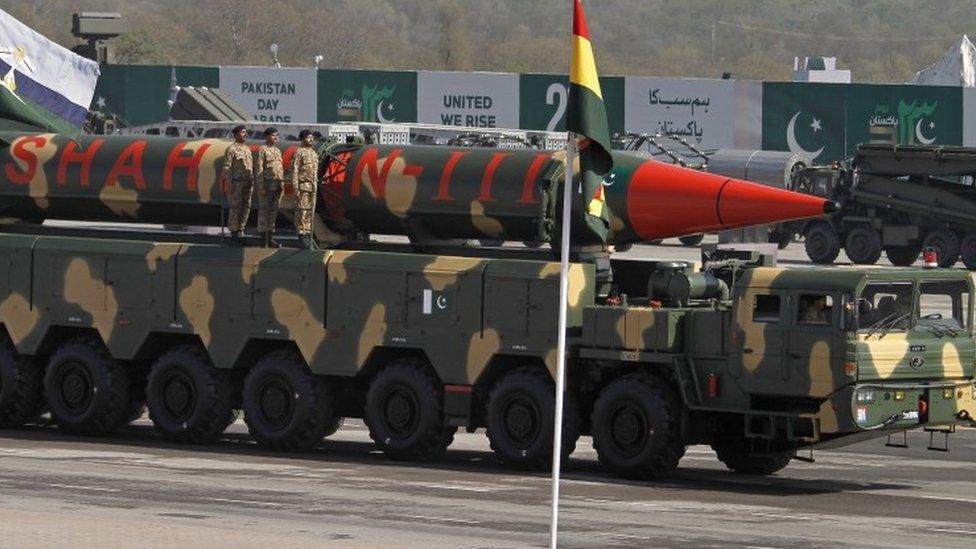Nobel Peace Prize winners aiming for a nuclear-free world
- Published
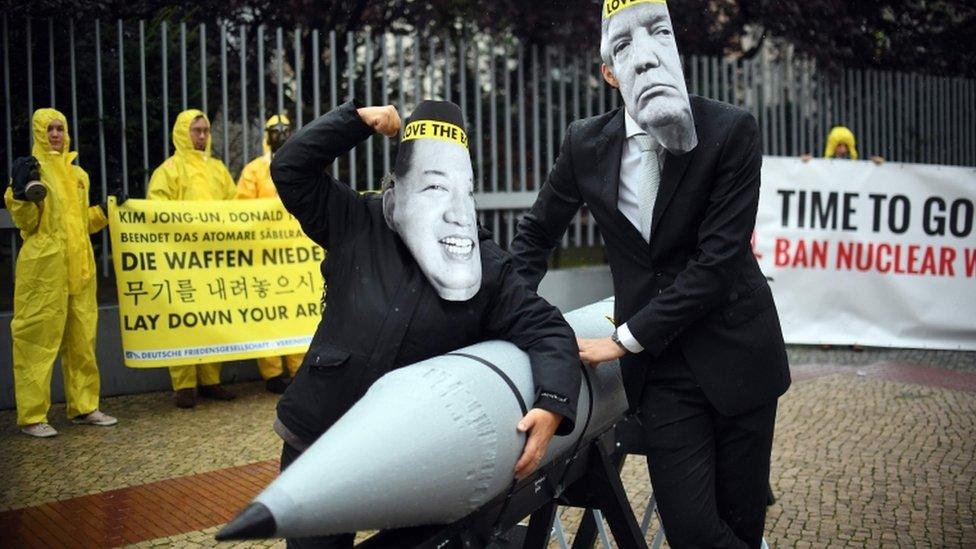
The Nobel Peace Pize Committee said the world's nuclear powers must begin "serious negotiations" toward disarmament
A Geneva-based group campaigning for the abolition of nuclear weapons has been named as the 2017 Nobel Peace Prize winners.
The International Campaign to Abolish Nuclear Weapons (Ican) was formed in 2007 and inspired by a similar campaign to ban the use of landmines.
As a coalition of hundreds of non-governmental organisations (NGOs) from across the world, they have highlighted the humanitarian risk of nuclear weapons.
The group's 10 years of advocacy helped pave the way for the introduction of a UN treaty banning the weapons, which was signed this year.
While 122 countries backed the treaty, the talks were notably boycotted by the world's nine known nuclear powers and the only Nato member to discuss it, the Netherlands, voted against.
Was the Nobel committee trying to send a message?
"We live in a world where the risk of nuclear weapons being used is greater than it has been for a long time," said Berit Reiss-Andersen, the Nobel committee chair.
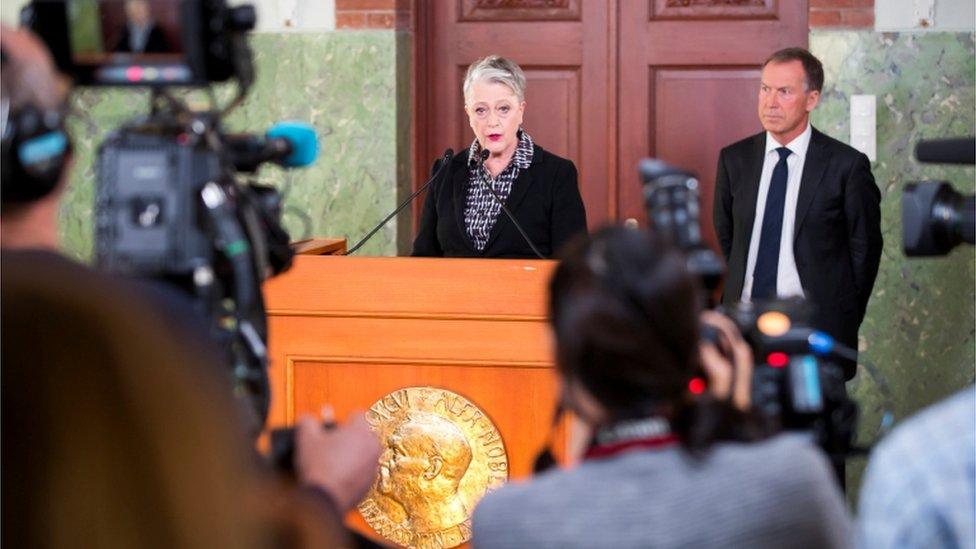
Berit Reiss-Andersen said the group won because of their "groundbreaking efforts to achieve a treaty prohibition"
Tensions between US President Donald Trump and North Korea have been mounting for several months over North Korea's nuclear ambitions.
Mr Trump is also threatening to withdraw from an agreement which monitors and limits Iran's nuclear development.
In a statement posted on Facebook, Ican said, external the prize "shines a needed light on the path the ban treaty provides towards a world free of nuclear weapons".
"This is a time of great global tension, when fiery rhetoric could all too easily lead us, inexorably, to unspeakable horror," the statement read.
"If ever there were a moment for nations to declare their unequivocal opposition to nuclear weapons, that moment is now."
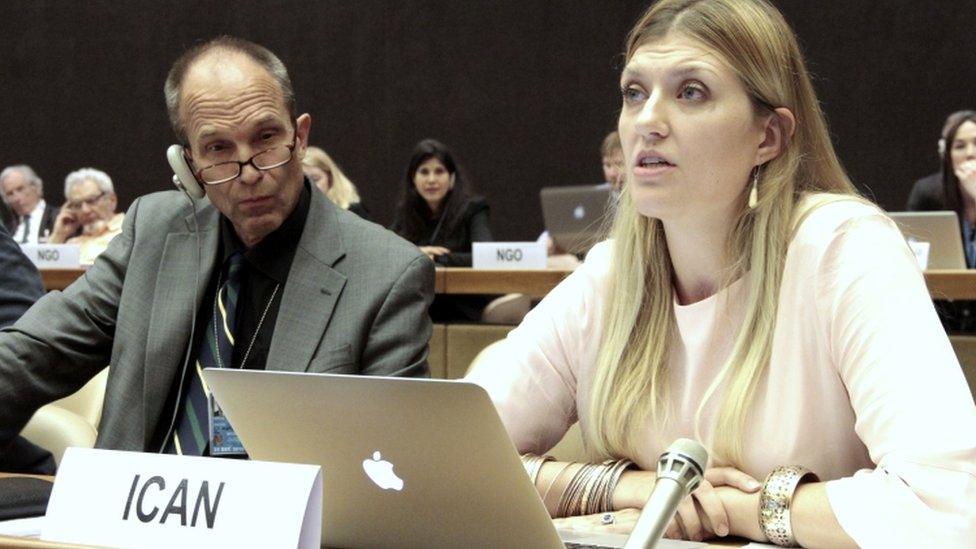
Ican director Beatrice Fihn pictured addressing a UN working group toward a ban in 2015
The number of nuclear weapons worldwide has been steadily decreasing since the 1980s, but none of the world's declared nuclear nations have fully disarmed - an ambition set out in the 1970 Treaty on the Non-Proliferation of Nuclear Weapons, external (NPT).
Nuclear armed nations boycotted the latest talks because they favour working within the NPT's original framework to reduce stockpiles.
Unlike the NPT, the 2017 treaty explicitly bans nuclear weapons. It calls for signatories not to develop, test or threaten to use the weapons. It also forbids nations from having weapons tactically stationed in their countries from allied partners.
But so far it has only been acceded to by 53 of the world's countries including Cuba, Ireland and New Zealand.
The US ambassador, Nikki Haley, has also labelled a total ban "not realistic".
Mrs Haley said the US requires nuclear arms because of "bad actors" that could not be trusted.
Which countries have nuclear weapons?
"Getting rid of nuclear weapons isn't going to happen overnight," Beatrice Fihn, executive director of the Ican group, said on Friday.
"The treaty is meant to make it harder to justify nuclear weapons to make it uncomfortable for states to continue with the status quo - to put more pressure on them," she said.
- Published6 October 2017
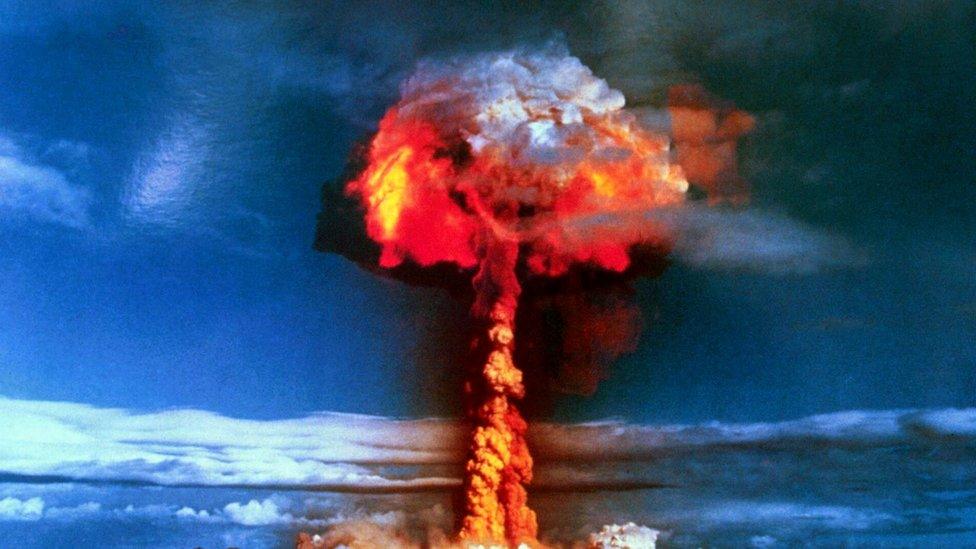
- Published30 August 2017
- Published27 March 2017
